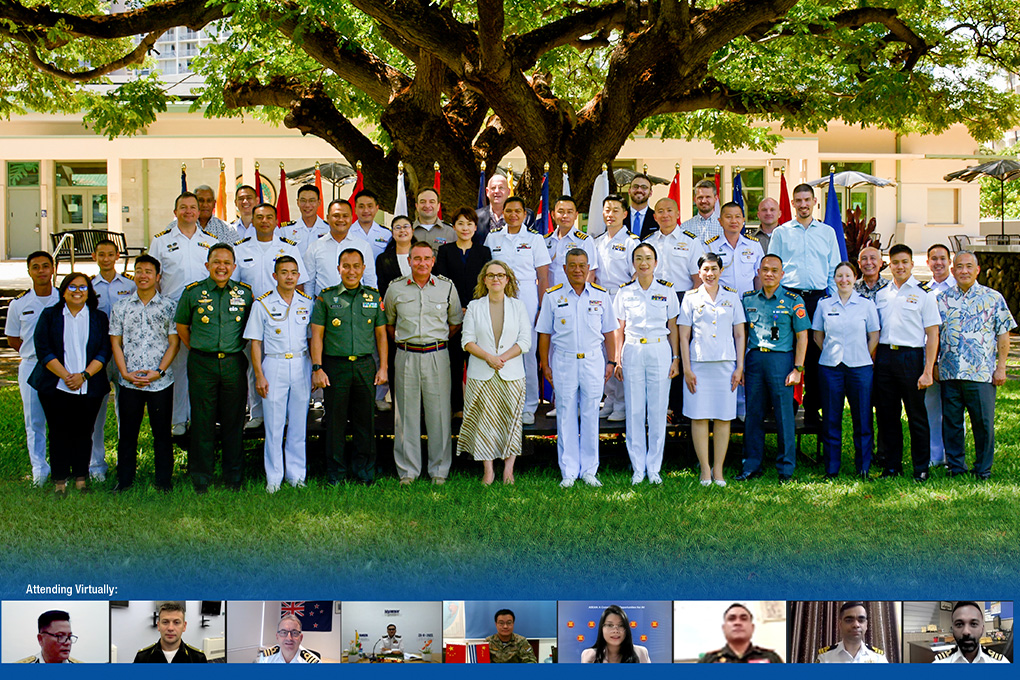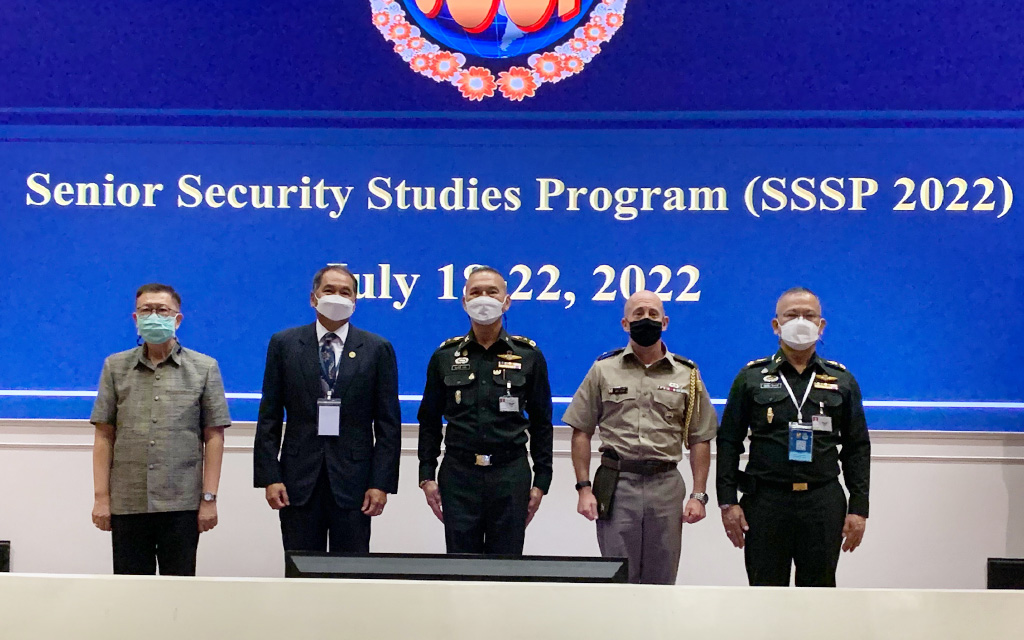APCSS partners with Singapore’s IDSS for conference on Southeast Asia
In September, the Asia-Pacific Center for Security Studies co-hosted a three-day conference on “Security Cooperation and Governance in Southeast Asia: Responding to Terrorism, Insurgency, and Separatist Violence in Indonesia, Thailand, and the Philippines” in Singapore. More than 80 attended the events which was co-hosted with the Institute for Defence and Strategic Studies.
This conference provided a comprehensive and up-to-date assessment of the current status and prospects for resolution of the three primary security threats facing Southeast Asia today: separatism, insurgency, and terrorism. It also helped identify the relationships and dynamics linking these three threats; looked at lessons learned from security responses to date; and identified regional needs and opportunities for regional and extra-regional engagement to address current and potential threats.
Examples of the Conference discussions:
Aceh
The December 26, 2004, earthquake and tsunami was critical in: i) opening the way for international involvement in the region and providing the Indonesian military (TNI) an occasion to be rewarded for reform and openness; ii) focusing attention on achieving peace if long term aid was to continue to flow; iii) consolidating the political will of the Government of Indonesia (GOI) to push for a comprehensive settlement and; iv) in convincing the Free Aceh Movement (GAM) that the time had come for a negotiated conclusion to hostilities.
The second key factor was the presence of the newly elected president, Susilo Bambang Yudhoyono, who had a clear public mandate as a result of Indonesia’s first direct presidential elections, a good working relationship with his former colleagues in the TNI, and considerable prior experience in the Wahid and Megawati administrations as coordinating minister for political and security affairs in working toward a settlement in Aceh.
Southern Thailand
The underlying issue is essentially an ethno-nationalist one – it is bound up with Malay identity and the failure of the government in Bangkok to accommodate Malay aspirations. Religion is very much a secondary issue. This is about Malayness not about Islam, and linkages with ulama (Islamic scholars), mosque and madrasah (Islamic schools) are secondary and essentially coincidental as sites for traditional Malay community consultation and leadership.
Mindanao
Islam plays a much greater role in the southern Philippines than it does in southern Thailand but even there it is important to understand that Islam is but one factor in a very complicated mix.
This is true even within the MILF which is so highly factionalized as to no longer represent a single, coherent, organization. Some factions are strongly motivated by Islamist, and even jihadi Islamist, political aspirations whereas others are willing to negotiate with the Government of the Republic of the Philippines (GRP) and accept secular government and social pluralism. The role of personal charisma and personal networks cannot be underestimated.
There is a great multiplicity of key actors and most are very fluid in their orientation. This needs to be kept in mind in analyzing current and future JI links with MILF factions.
APCSS hosts 8-12 outreach events each year in Hawaii and throughout the Asia-Pacific Region. In the past APCSS has hosted more than 100 conferences with more than 6,500 attendees from 66 countries









Leave A Comment